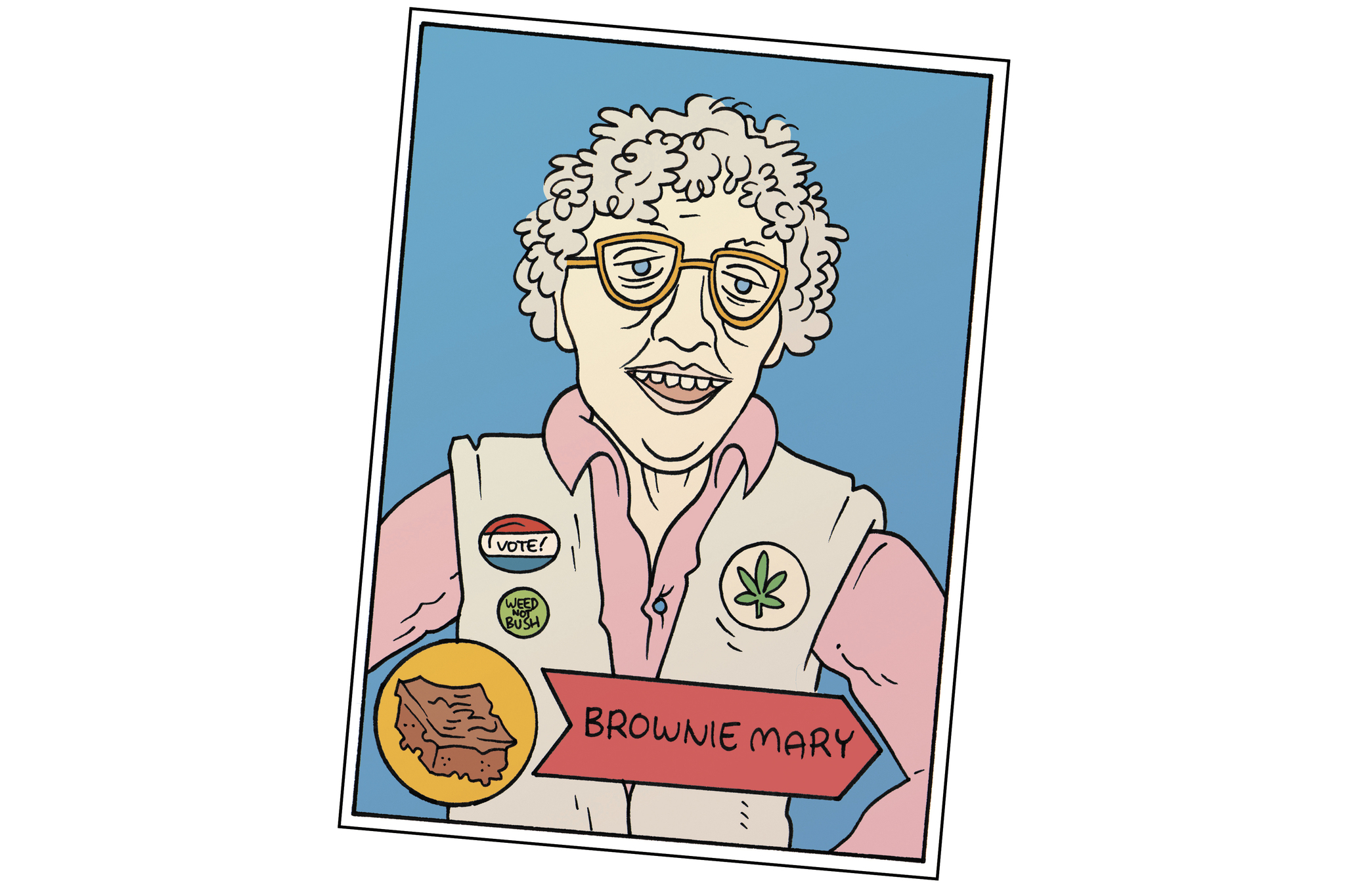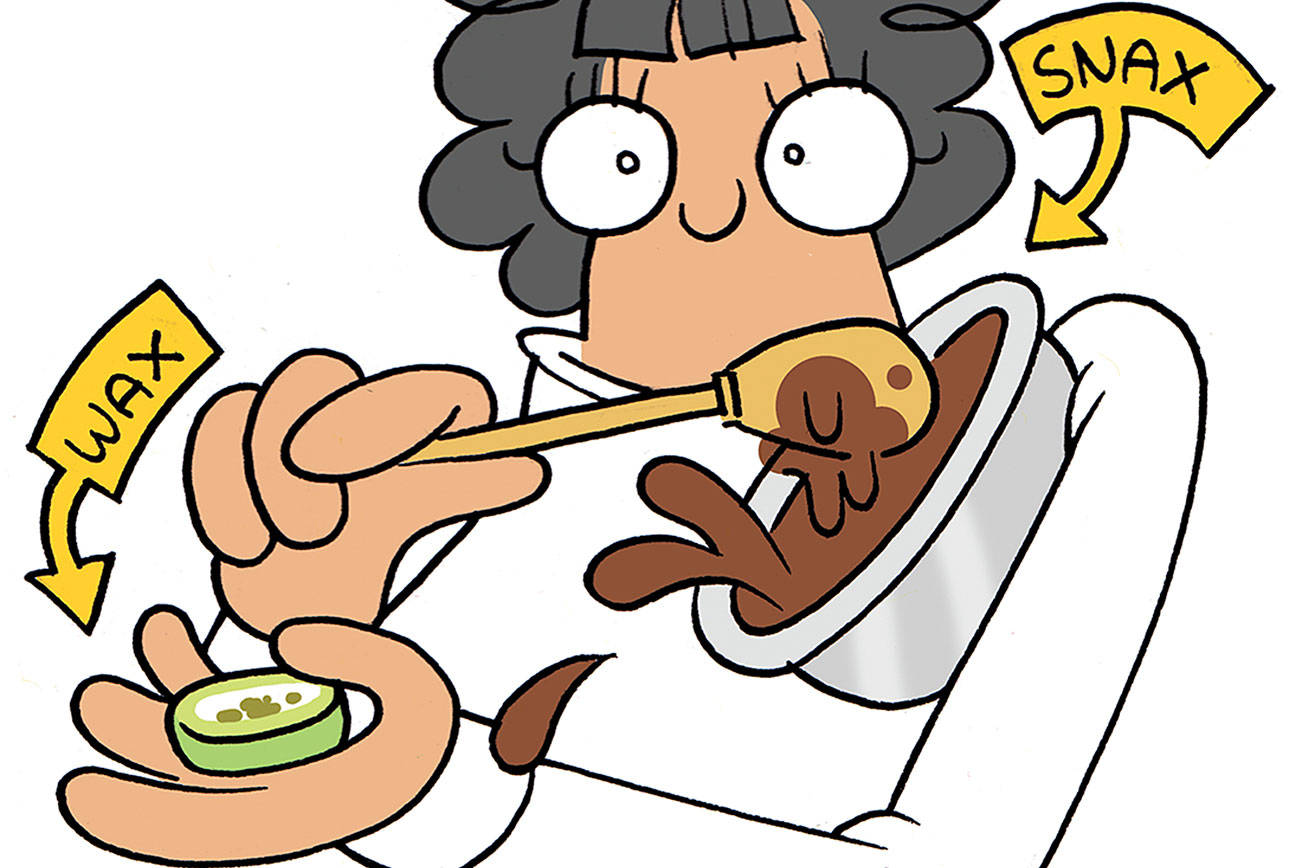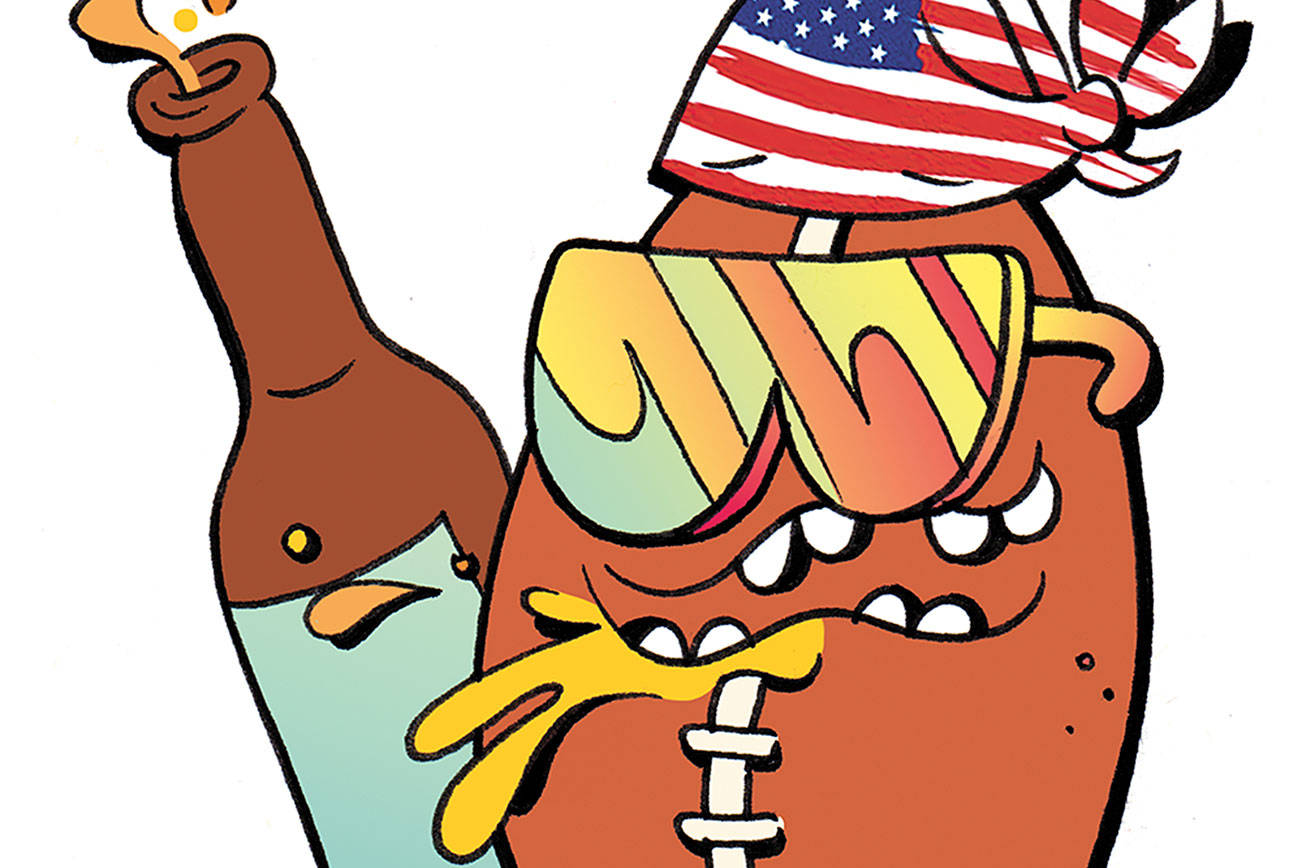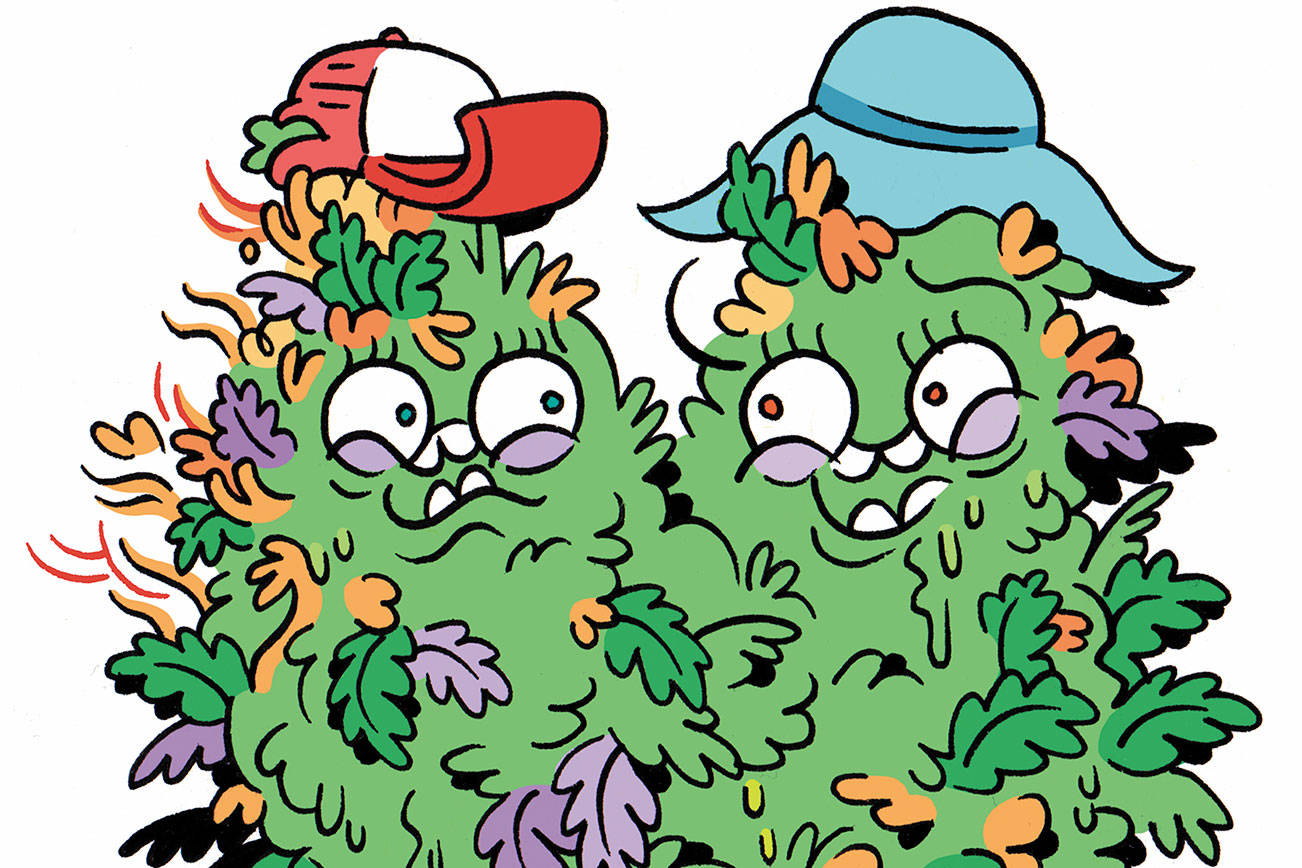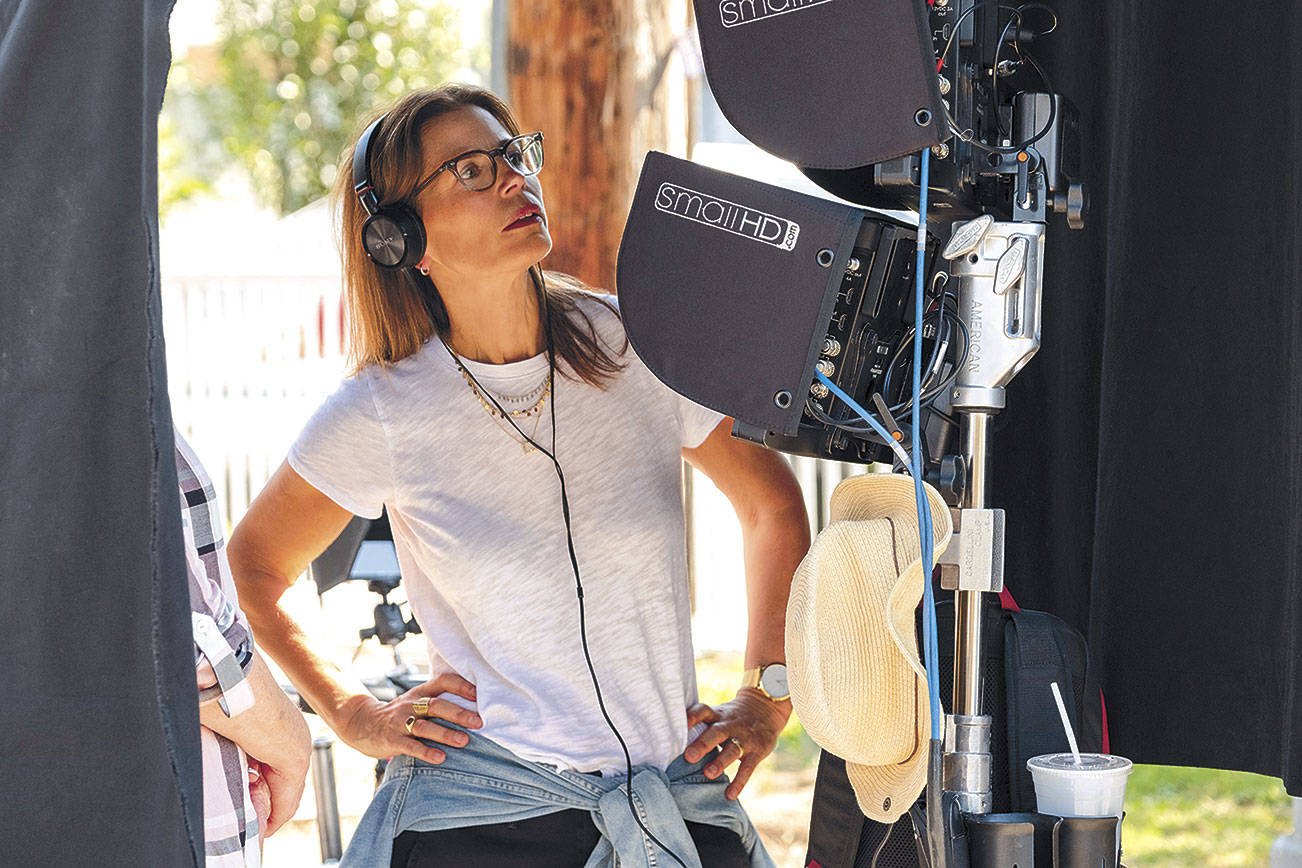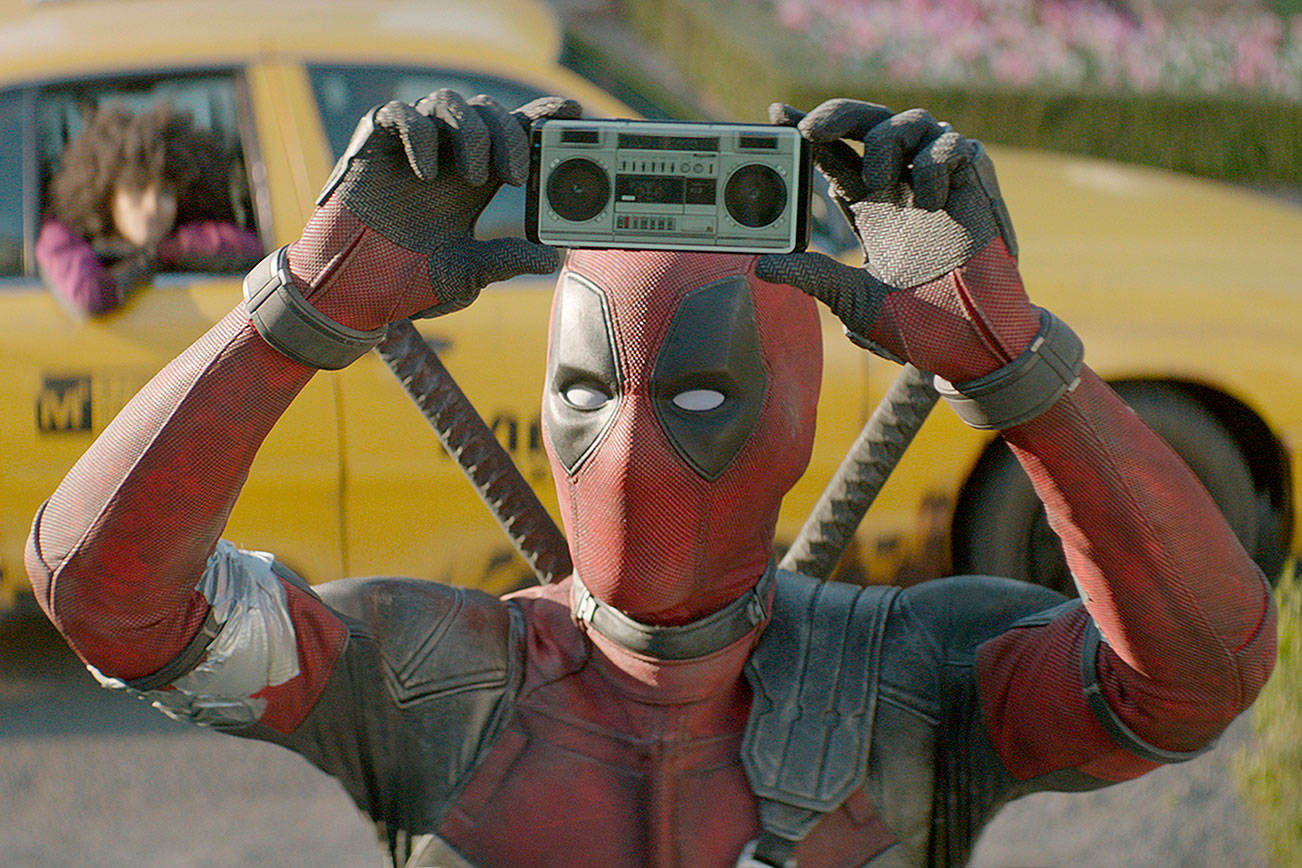Mary Jane Rathbun learned early on to fight the system. Born into a conservative Minnesota family in 1922, she pushed back against her Catholic upbringing, even fighting a nun who tried to cane her at age 13. And she kept fighting after that, earning herself a place on the Stash Box list of Really Important Stoners.
Later in her teens, Rathbun moved out of her parents’ house, got a job and a place to stay, and protested on behalf of miners and union workers in Illinois and Wisconsin. By the late 1940s, Rathbun was agitating for abortion rights. In the early ’70s she landed in San Francisco, where she met Dennis Peron, another famous cannabis activist. In her signature pantsuits, she strolled the Castro, selling pot brownies, slowly garnering a reputation around the neighborhood. Boldly she began posting hand-drawn flyers advertising her “magically delicious” brownies. When she was busted the first time, Rathbun was moving about 50 dozen a week. She was 57. The local press picked up the story about the groovy grandma, dubbing her “Brownie Mary.” Pleading guilty, she was put on probation and given community service.
In 1981, as the first wave of AIDS rippled through the city, Rathbun was brought face to face with its ravaging effects. A self-avowed atheist and anarchist, she refocused her efforts on helping AIDS and cancer patients. Word spread, and soon growers were donating pounds of weed to her efforts. Rathbun began baking hundreds of brownies a day, distributing them free to sick people across the Bay Area. She was arrested again in 1982 while bringing a few dozen brownies to a friend with cancer, though the district attorney later dropped the charges.
The early ’90s were a busy time for Rathburn. In 1991 she co-wrote Proposition P, which encouraged the state of California to protect doctors who prescribed cannabis. It passed with 79 percent of the vote. In 1992 Rathbun was arrested again—this time in the very act of baking her famous treats—but was again acquitted on all charges. Later that year she co-founded the San Francisco Buyers Club, the first public medical-cannabis dispensary in the U.S., and the city declared August 25 “Brownie Mary Day.”
I literally don’t have enough room to list all her amazing feats, but chief among them is her 1996 work on California’s Proposition 215, the first statewide initiative allowing patients to grow and cultivate medicinal cannabis with a prescription. It basically set the stage for the rest of the country to have the MMJ talk.
She died of a heart attack in April 1999. Her recipe has never been found.
stashbox@seattleweekly.com
